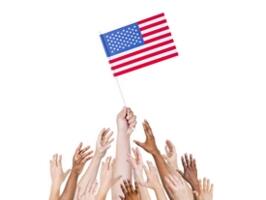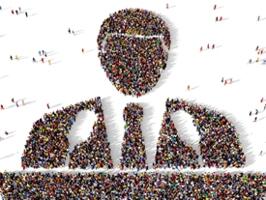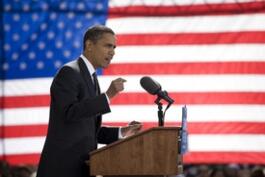Voters Paint A Grim Racial Picture of America
The White House insists that blacks are better off after President Obama’s eight years in office, but voters strongly disagree. No wonder Republican nominee Donald Trump is reaching out to black voters, saying they have “nothing to lose” by supporting him.
Only 13% of Likely U.S. Voters believe life for young black Americans has gotten better since Obama’s election in November 2008. Forty-one percent (41%) believe it has gotten worse.
Even among black voters, only 15% say life for young black Americans is better now.
Sixty percent (60%) of all voters think race relations are worse since Obama’s election in 2008. Just nine percent (9%) believe race relations are better now.
Perhaps even more disturbing is that 50% of Americans believe race relations are getting worse, the highest level of pessimism ever in Rasmussen Reports surveying, and that was in January, before several high-profile police shootings and revenge killings of police officers.
By contrast, in January 2009, just before Obama’s inauguration, 70% of Americans said relations between black and white Americans were getting better.
(Want a free daily e-mail update? If it's in the news, it's in our polls). Rasmussen Reports updates are also available on Twitter and Facebook.
As recently as last September, only 20% of voters said Obama has brought Americans of different races closer together. Forty-seven percent (47%) think the president has driven those of different races further apart instead.
Forty-four percent (44%) of black voters feel the president has brought us closer together, but just 16% of whites and 21% of other minority voters agree.
However, 53% of blacks – and 72% of all voters – believe America is a more divided nation than it was four years ago.
After eight years of the first black president, blacks are still much more likely than whites and other minority voters to believe the economy and the U.S. justice system is unfair to them.
Blacks strongly believe they are treated unfairly by the police, but most voters in general think crime in inner cities is a bigger problem than police discrimination against minorities.
Seventy-five percent (75%) of black Americans say this country has not reached the time of equal opportunity that Martin Luther King, Jr. preached about. That view is shared by 59% of whites and 56% of other minority adults.
Voters definitely have a low opinion of politicians who play the so-called “race card,” but the frequency with which it is used suggests that it’s a successful political tactic. Witness Hillary Clinton’s attempt this week to tie Trump to the Ku Klux Klan. Only 14% of voters think most politicians raise racial issues to address real problems. Three-out-of-four voters (73%) think they’re only raising racial issues to get elected.
Sixty percent (60%) think comments critical of the police made by some politicians make it more dangerous for police officers to do their job. Just 15% disagree and say it’s more likely that these critical comments improve the quality of the police’s performance.
But there’s a noticeable racial difference of opinion here, too. Sixty-six percent (66%) of whites and 52% of other minority voters believe critical comments about the police by some politicians make cops’ jobs more dangerous. Among black voters, just 36% feel that way, although only 24% think those comments improve the quality of the police’s performance.
Just 27% of whites, 38% of blacks and 32% of other minority voters think the country is headed in the right direction.
Please sign up for the Rasmussen Reports daily e-mail update (it’s free) or follow us on Twitter or Facebook. Let us keep you up to date with the latest public opinion news.
Rasmussen Reports is a media company specializing in the collection, publication and distribution of public opinion information.
We conduct public opinion polls on a variety of topics to inform our audience on events in the news and other topics of interest. To ensure editorial control and independence, we pay for the polls ourselves and generate revenue through the sale of subscriptions, sponsorships, and advertising. Nightly polling on politics, business and lifestyle topics provides the content to update the Rasmussen Reports web site many times each day. If it's in the news, it's in our polls. Additionally, the data drives a daily update newsletter and various media outlets across the country.
Some information, including the Rasmussen Reports daily Presidential Tracking Poll and commentaries are available for free to the general public. Subscriptions are available for $4.95 a month or 34.95 a year that provide subscribers with exclusive access to more than 20 stories per week on upcoming elections, consumer confidence, and issues that affect us all. For those who are really into the numbers, Platinum Members can review demographic crosstabs and a full history of our data.
To learn more about our methodology, click here.





